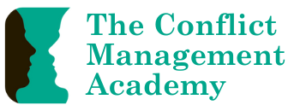This book is a fascinating account of how networks work. It explores how who we are connected to, directly and indirectly, can make a significant difference to things like power, opportunities, spread of infections, and dissemination of information. It also demonstrates how different kinds of connections (e.g. whether you are the hub of various connections, or how much your connections are also connected with each other) can impact in various ways. The four basic ways that someone can wield influence in their various networks depends on (1) popularity (how many connections you have); (2) connections (when you are connected to other well connected people; (3) reach (how quickly you can reach a lot of people within a short number of connections); and (4) brokerage and bridging (when you are an essential intermediary between individuals or groups, connecting otherwise disconnected people).
Jackson shows how, frequently, thinking about an issue in the context of networks of human relationships, changes the way we understand the issue.
Some fun facts I discovered from the book:
• Being connected to more people is generally a good thing, except when it comes to exposure to things like viruses.
• Being connected to a lot of people doesn’t mean you have a diverse network, we tend to connect to people who are like us.
• If your network lacks diversity and is highly connected, using the wisdom of your ‘crowd’ is likely to be problematic, as the results can be distorted by double counting and echoes.
• When you want to reach a goal or engage in a challenge, having a ‘monitor’ or accountability buddy who is central to your network will dramatically increase your chances of success.
• There are so many types of interactions people have that convey information (even without social media) that topical information disseminates incredibly quickly. (For example, it’s almost impossible to be in the USA and not know who won the Super Bowl within a few hours, despite trying very hard to avoid finding out.)
• Increasing globalisation and interdependence has had both positive and negative impacts – financial panic can spread very quickly, but there is more diversity to balance risks; and interdependence has reduced the number of wars significantly post 1950.

